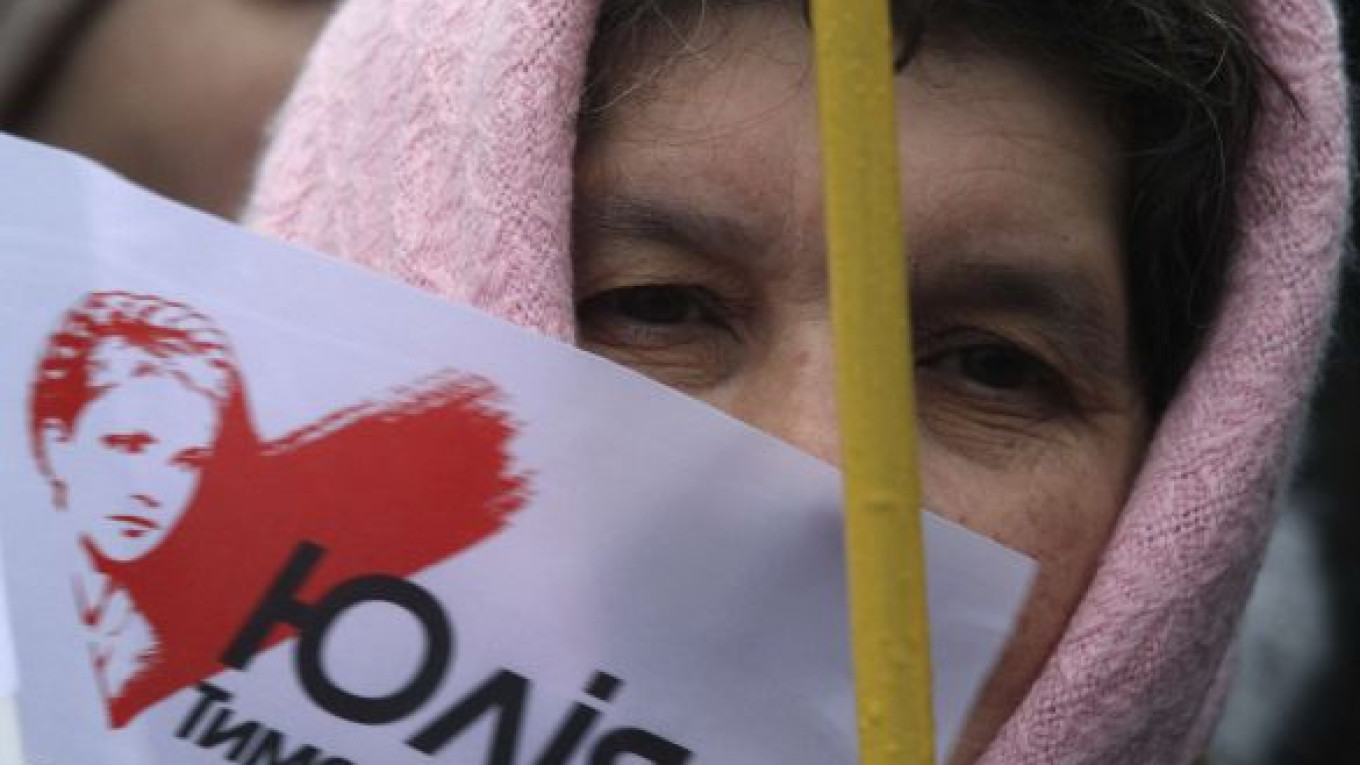BRUSSELS — The West is hoping for more political stability in Ukraine after Sunday’s presidential election, but quick entry into NATO or the European Union are off the agenda whatever the outcome.
Infighting among Ukraine’s leaders and economic crisis have shattered the optimism inspired in the West by the Orange Revolution in 2004, and Ukrainians say Western leaders have lost interest in their country.
“Ukraine has gone from being a darling of the EU to a complete and utter nightmare,” said Tomas Valasek, an analyst at the Centre for European Reform, a think tank.
“A few years ago, most EU states were convinced it should be in the European Union within a few years. All that has changed,” he said.
Governments from Europe to the United States hope that the vote will at least provide some clarity as to who is running Ukraine after years of squabbling between the president, prime minister and main opposition leader.
But there is little optimism that either of the two main candidates — opposition leader Viktor Yanukovych and Prime Minister Yulia Tymoshenko — can bring any quick turnaround.
There is also considerable nervousness that the election could generate further political strife.
Lack of Ukrainian support for joining NATO has pushed membership off the immediate agenda, despite the Western military alliance’s pledge that Kiev will one day become a member.
The political turbulence in Kiev has also seriously damaged hopes harbored by both main candidates that Ukraine could one day join the EU.
Ukrainians say the problems are not entirely of their own making and accuse the West of suddenly losing interest in their country. The EU and NATO became more wary after saber rattling by Russia and Russian suggestions that drawing Kiev into the Western orbit would damage business ties with Moscow.
Valasek said the election could be a last chance for Ukraine to revive its EU prospects. “With the economy being in such terrible shape, the appetite and desire among EU member states to consider Ukraine as a potential member has decreased correspondingly,” he said. “We are all looking at the election and hoping for a little more stability, a little more clarity about who’s actually running the country.”
Andrew Wilson, an analyst with the European Council on Foreign Relations and author of “Ukraine’s Orange Revolution,” said EU-Ukraine economic cooperation remained essential and Kiev’s future membership prospects could be revived. “The ball is very much in Ukraine’s court. Whoever is elected will have to restore a reputation for policy coherence and policy delivery pretty soon — within the first 30 or 100 days, particularly on items already on the table,” he said.
“There are indications that Tymoshenko, at least, would try to revive those issues were she to be elected,” he said.
EU foreign policy chief Catherine Ashton told a European Parliament hearing Monday that “clear European interests are at stake” in the election.
A senior EU official described dealing with Ukraine’s leaders as one of his most frustrating experiences and saw little reason for optimism whatever the outcome. “It’s hard to see anything changing while the same leaders remain in power,” he said.
A Message from The Moscow Times:
Dear readers,
We are facing unprecedented challenges. Russia's Prosecutor General's Office has designated The Moscow Times as an "undesirable" organization, criminalizing our work and putting our staff at risk of prosecution. This follows our earlier unjust labeling as a "foreign agent."
These actions are direct attempts to silence independent journalism in Russia. The authorities claim our work "discredits the decisions of the Russian leadership." We see things differently: we strive to provide accurate, unbiased reporting on Russia.
We, the journalists of The Moscow Times, refuse to be silenced. But to continue our work, we need your help.
Your support, no matter how small, makes a world of difference. If you can, please support us monthly starting from just $2. It's quick to set up, and every contribution makes a significant impact.
By supporting The Moscow Times, you're defending open, independent journalism in the face of repression. Thank you for standing with us.
Remind me later.


